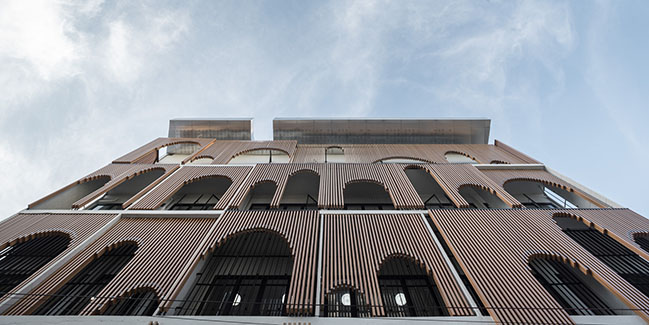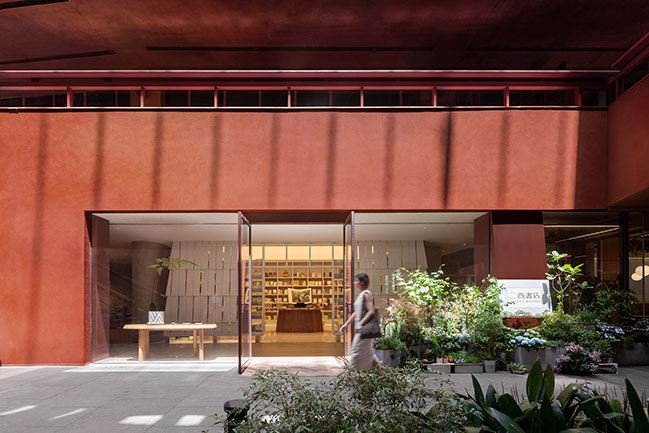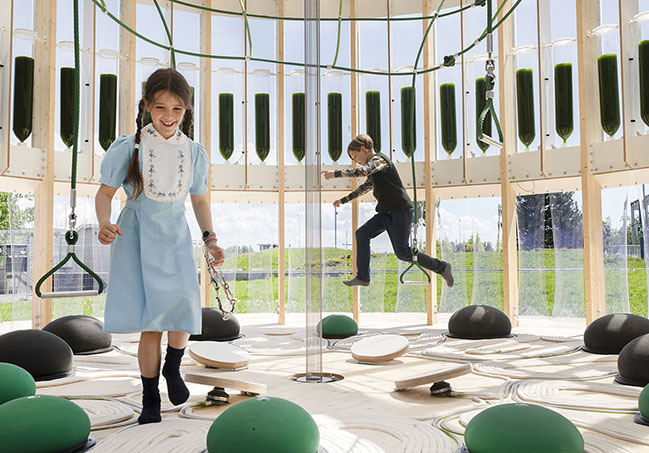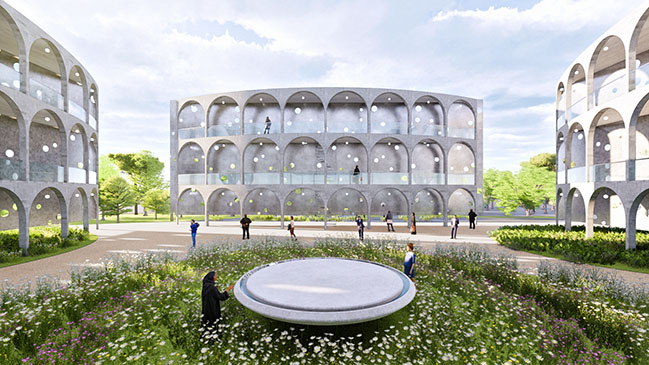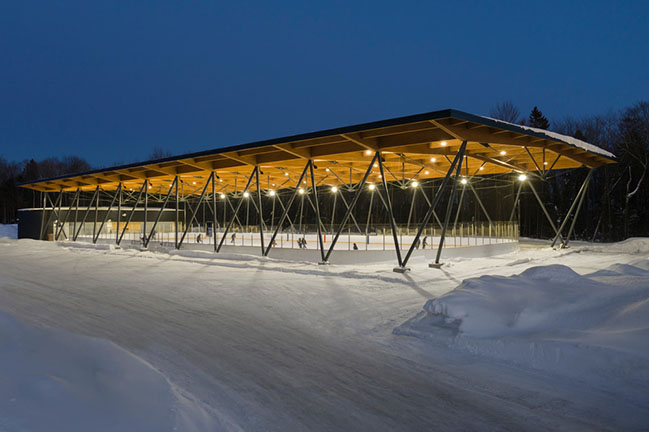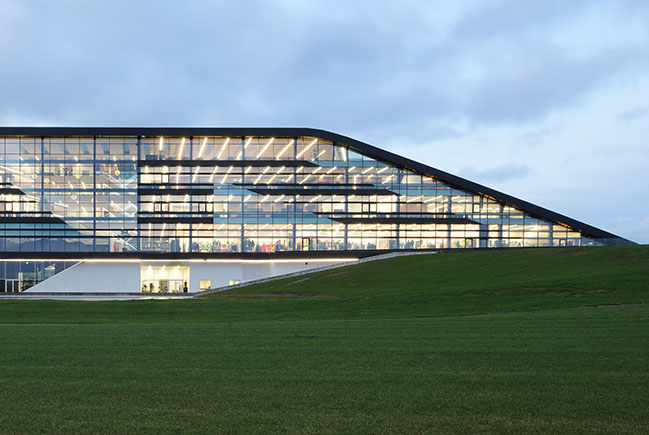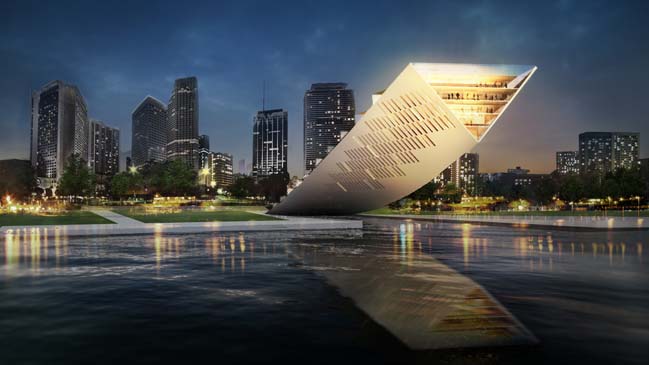06 / 17
2021
Old house, new splendour. The Altstadthotel Weisses Kreuz in Innsbruck's city centre invites its guests to indulge in a refreshing and colourful journey through time with 48 new rooms and suites, where noa* has created the perfect setting...
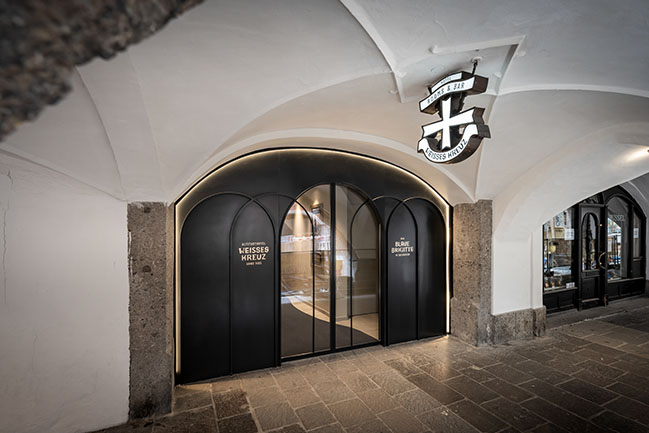
From the architect: No right angles in sight here: the venerable house in Herzog-Friedrich-Straße, which dates from the 1460s, is a building in Innsbruck's historic streets whose architecture is inflected with architectural elements from a wide range of historical eras, having undergone constant transformation. Yet the distinct features of each period coalesce in timeless fashion to form a symbiosis of urbanism. In keeping with the rhythm of change over the centuries, the Hotel Weisses Kreuz fits into this pattern, providing a uniquely appealing architectural challenge for noa*.
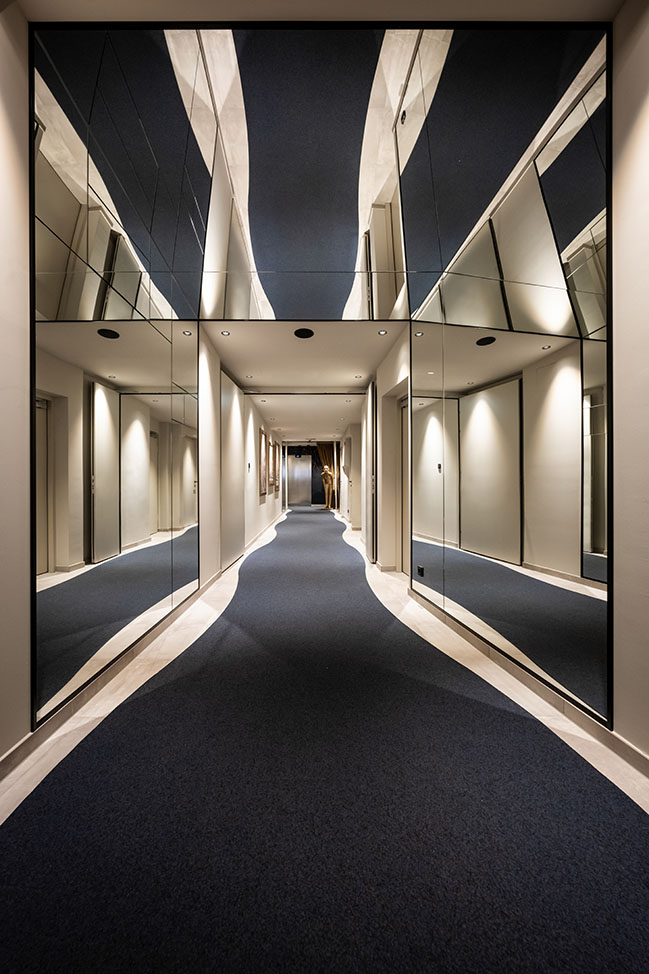
Not far from the famous Goldenes Dachl (Golden Roof), the Altstadthotel has always been a popular destination for famous travellers and historical celebrities, among them Wolfgang Amadeus Mozart, who stayed there as a 13-year-old in 1769. The building is narrow and elongated towards the rear, its front-facing arcade blends perfectly with the historical fabric of the city.
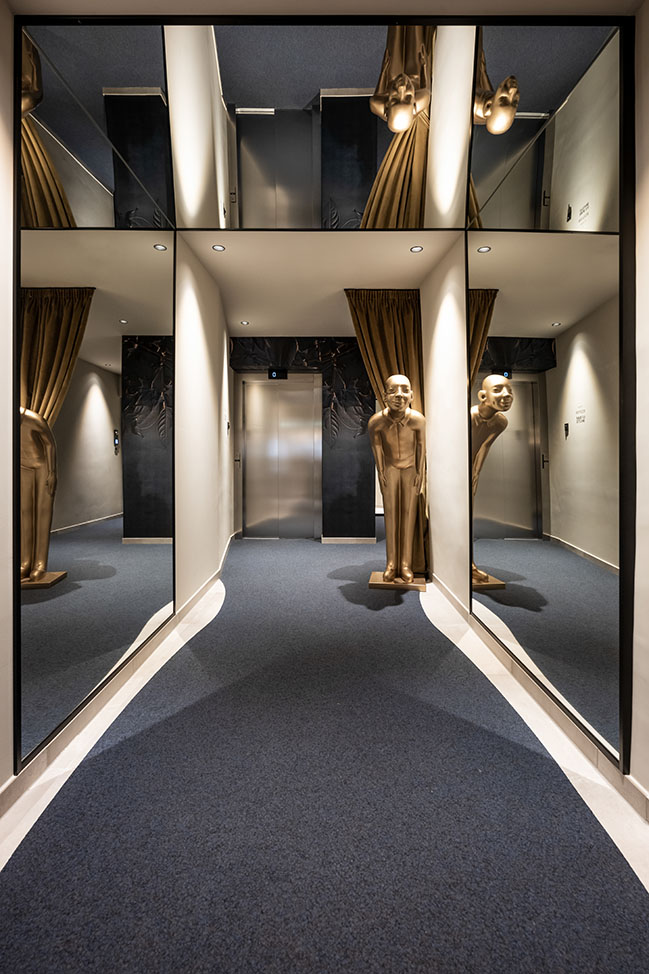
During the redesign, a loft level was added to the existing six storeys, which have been extended with delicacy and professional finesse, while respecting the conservation rules. The new loft is meticulously choreographed: on the one hand, it remains alive to the neighbourhood and cityscape by retaining its original slope towards the street-facing front elevation, but at the rear it rises in height and opens up through six glass cubes offering wonderful views over the city skyline. From here, guests can enjoy a unique panorama, taking in the Pulverturm, ski jump and Nordkette.
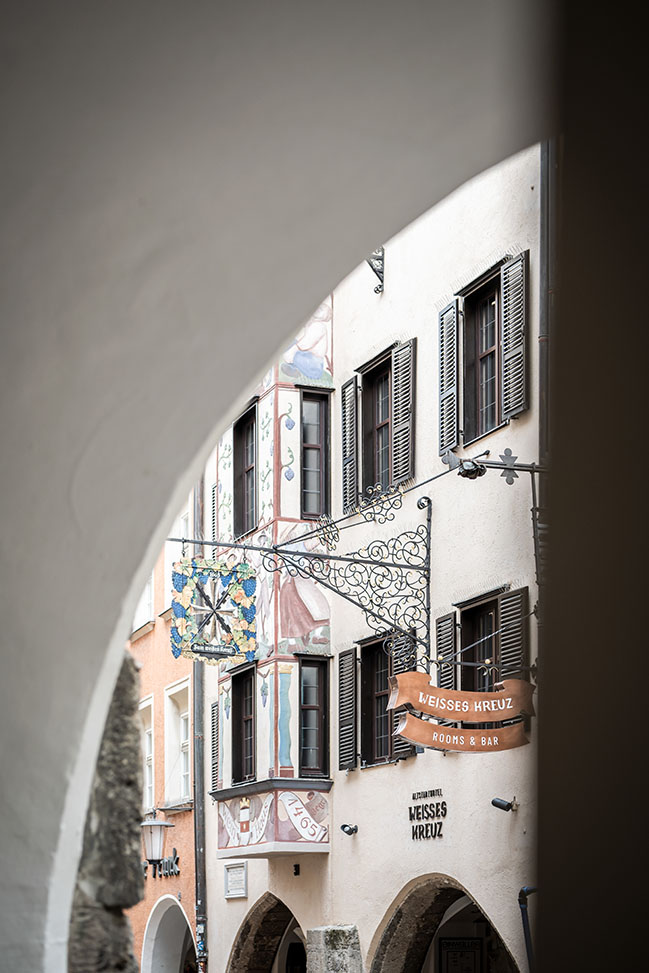
A VIRTUAL JOURNEY THROUGH TIME
Guests are invited to begin their journey through time on the ground floor: the lift is accessed via a long corridor punctuated by two "mirror locks". Guests see themselves reflected, but at the same time any boundaries are dissolved by the mirrored walls and ceiling and the architecture ceases to exist. From the entrance itself, guests are transported away from their own sense of time.
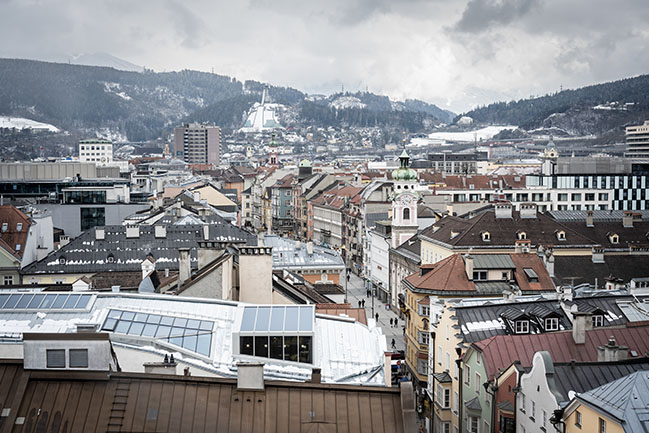
The lift takes them straight to the brand new sixth floor, where a warm welcome awaits. There, the first thing they will notice is a dominant piece of furniture in the long room: a 13-metre-long, custom-made brass table with baroque ornamentation. The table is a multifunctional reception, breakfast buffet, bar, and convivial meeting place in the evening, which is open to non hotel guests as well. The table is further enhanced by the smoked oak floor, and the brass provides a regal contrast with the warm dark blue saturating the room. Blue also features in the name of this iconic venue: “Zur blauen Brigitte” [Blue Brigitte], named after one of the building’s two owners.
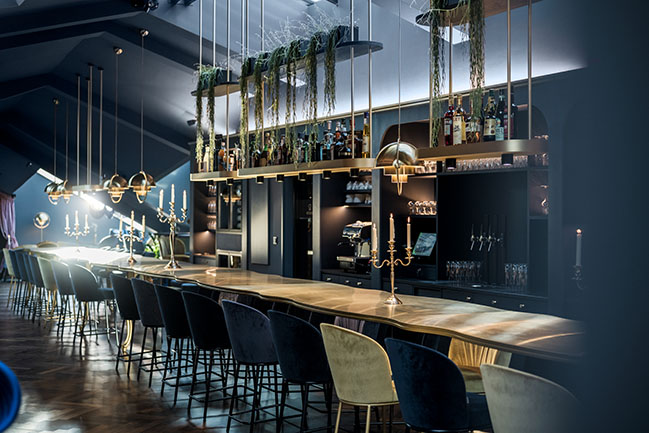
The blue loft, with its bay windows, glass alcoves and breath-taking views, is the opposite of "a cold atmosphere". Various seating areas with unusual armchairs and Gatsby-style lighting offer an eclectic ambience, where charming accents in light pink and ochre yellow tie in with opulent brass. Elements from a wide variety of stylistic periods conspire to blur any sense of time. The project's by-line – “Baroque Chic Shock“ – is evident by its varied and peculiar characteristics. Minimalism and white spaces are anathema here: everything has been colour-coordinated, right down to the technical details. This lively spirit is reflected in every nuance and evokes the building’s dynamic history, of which a new chapter is now being written.
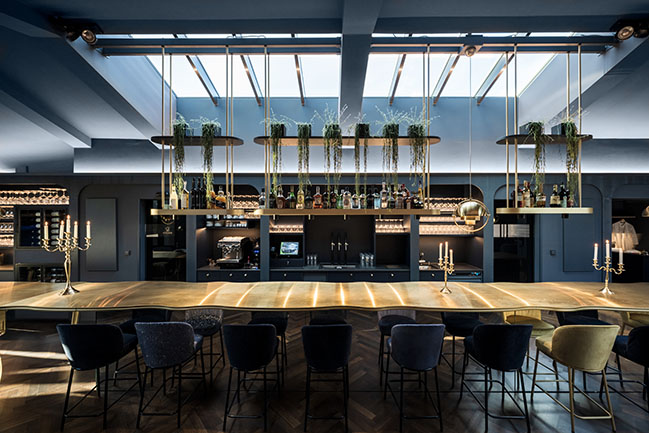
OFF TO THE BEDROOM
The new rooms and suites – or “chambers”, as the owners affectionately call them – are located on the floors below. Despite the architectural irregularity of these existing floors, with their gothic ceilings, arches and varying room heights, noa* has succeeded in bringing some kind of calm to the madness. The guest rooms facing the street allow you to engage in the hustle and bustle of Innsbruck's old town just by looking out of the window, while those facing the inner courtyard delight with an internal patio or balcony creating a secluded idyll. For the windowless central part of the building, noa* has devised a particularly ingenious way to make use of the space here while allowing these rooms to receive natural light. They are lit via an internal courtyard between the first and sixth floors and have a small private, landscaped terrace.
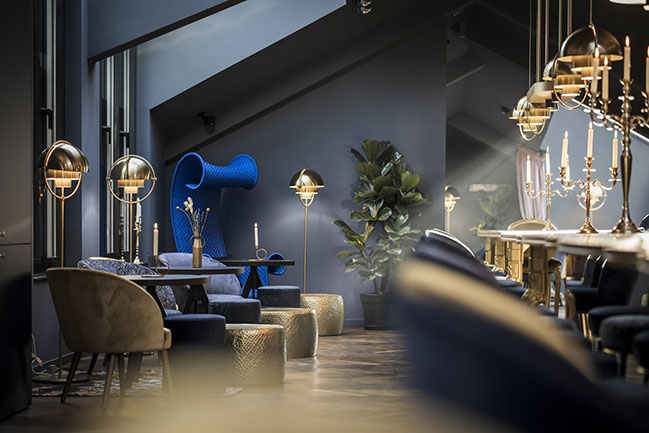
The rooms themselves have consistent colour codes. Each is immersed in a monochrome colour and becomes the setting for the baroque elements. Colour is part of the journey through time that the guest embarks on. Each hue gives an indication of the configuration of the respective room. When compared to the light blue rooms, the red rooms are slightly more spacious, the dark blue rooms have a balcony, and the green rooms have a terrace overlooking the courtyard, while the grey rooms are all twin-bedded.
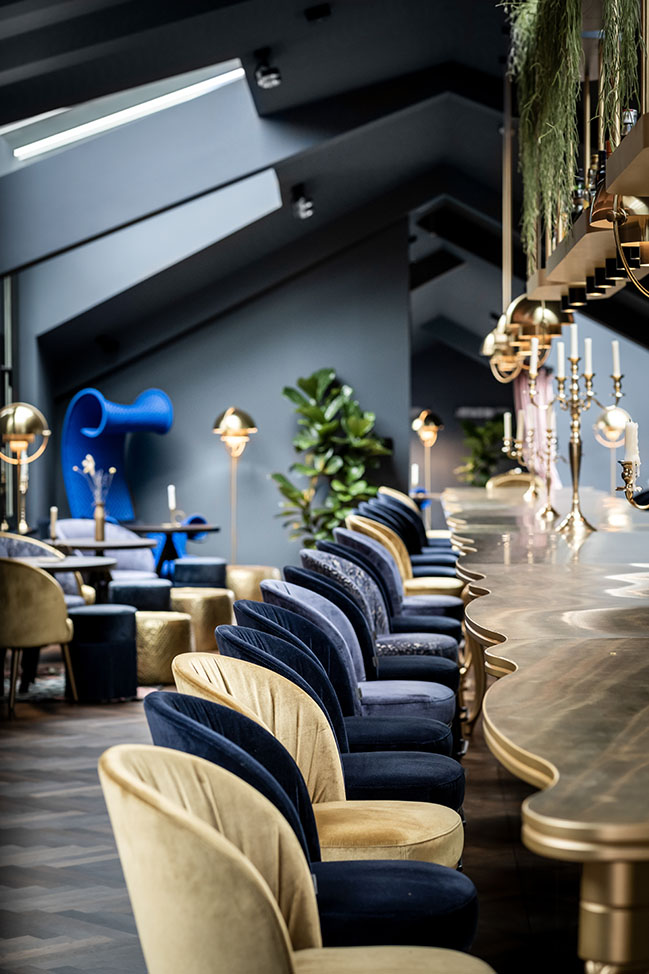
All the furnishings are in keeping with the colour: from carpet and tiles to wall colour, curtains and furniture. The baroque theme is reflected in particular details, for example, one leg of the washstand or a chest of drawers is always “baroquefied”, but it also shines through in other accessories. The baroque touch is further accentuated by a specially created series of photographs of opulently dressed ladies who pick up on the leitmotif of “Baroque Chic Shock” through whimsical accessories.
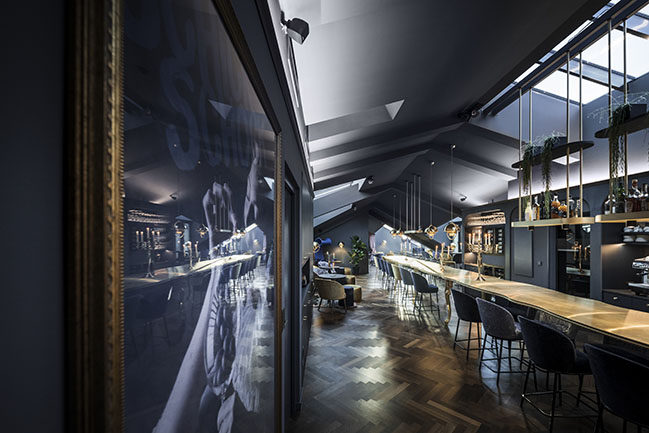
ROCK ME, AMADEUS
The first floor, which has been extended into the courtyard by six rooms, create a unique impact. All the rooms have an overhead glazed terrace and a spacious outdoor area. The highlight of this floor is the “Superpatio” room with its green jungle decor, a small green oasis with antique furniture and an unusual bed. Up one floor, on the second floor, is the “Mozart Suite”, a spacious retreat where Mozart once lay to rest.
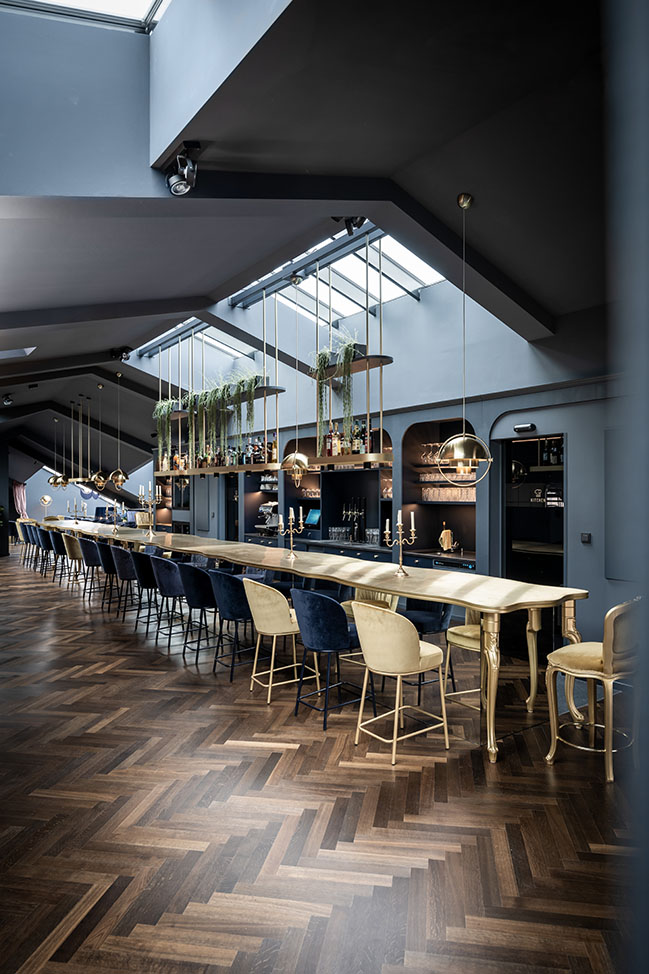
Here, grandiose elements abound in red and gold. As a tribute to the famous composer, who was a keen gambler, a billiard table graces the room. A further curiosity can be found on the third floor: a “broom cupboard”, the smallest room in the hotel, which remains completely unfinished. With its unplastered walls, it is the “unstyled” centre of an otherwise meticulously designed iconic hotel.
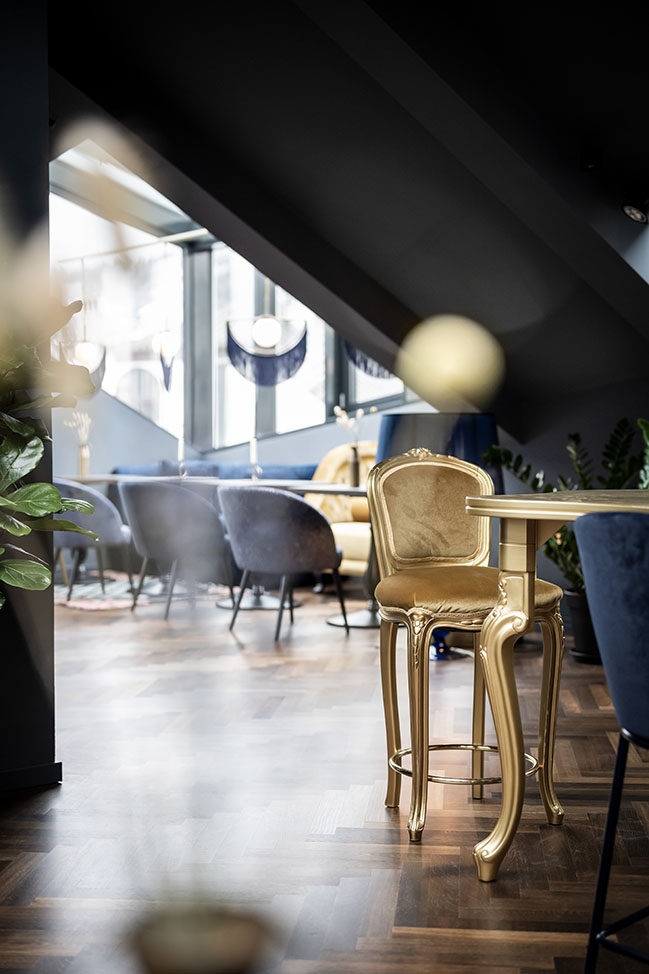
As a complete one-off, the signed tennis racket of a famous Wimbledon champion adorns the wall. The fourth floor extends into the neighbouring building – the Frank House – which has a further 10 rooms. On this floor is the “Golden Roof” room, with its opulent gilded furnishings. It was named after the Golden Roof, which can be seen from the bay window.
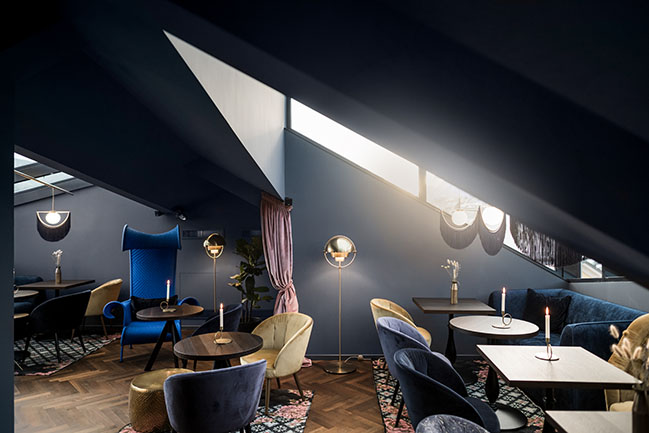
OUT OF TIME AND SPACE
It is not only irregular forms that evoke history. Murals discovered during the project tell stories whose authors remain unknown. The Weisses Kreuz is making a fresh start with a new concept, and at the same time it is full to the brim with surprises and secrets. The dreams and anecdotes of times gone by extend all the way to the loft, whose glass openings put the starry sky within reach.
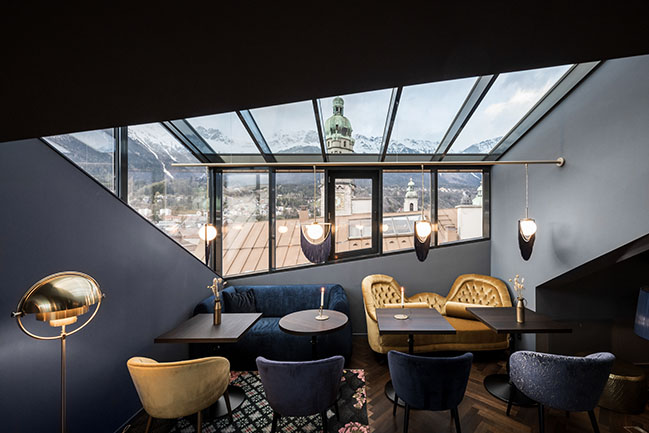
Architect: noa* network of architecture
Client: Altstadthotel Weisses Kreuz
Location: Innsbruck, Tyrol, Austria
Year: 2021
Surface area: 3,163 sqm
Interior Design: noa* network of architecture
Photography: Alex Filz
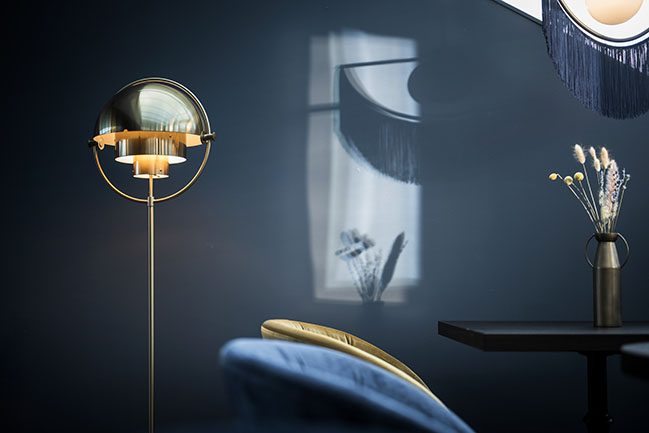
YOU MAY ALSO LIKE: Gfell: A hotel under the barn by noa*

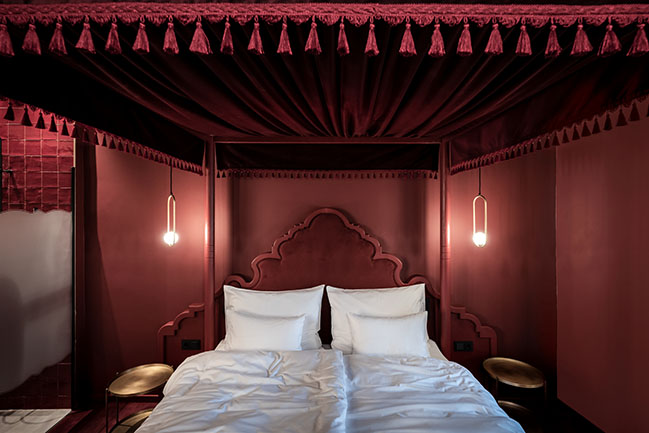
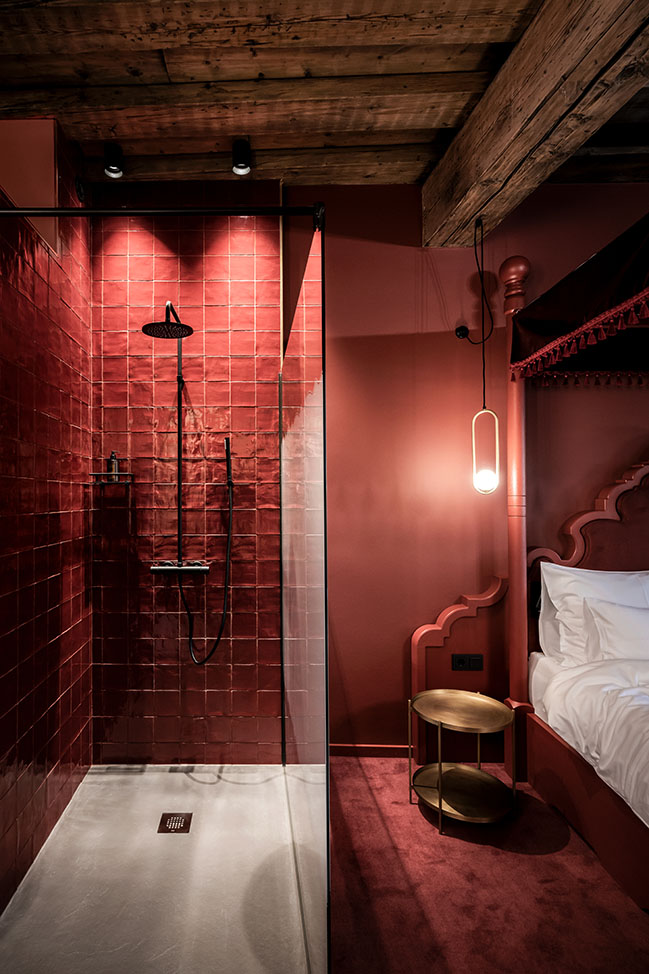
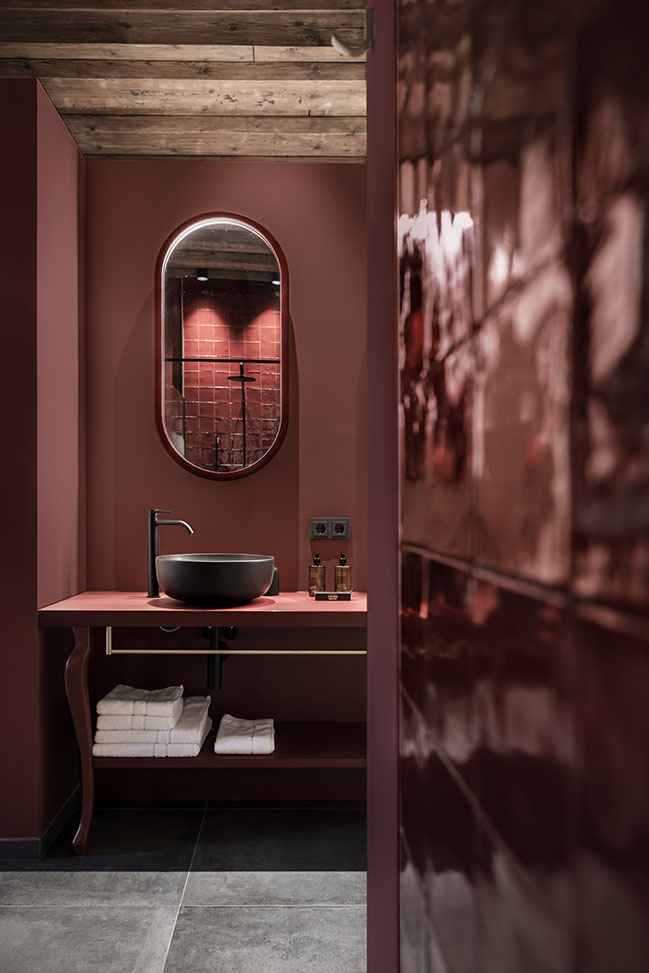
YOU MAY ALSO LIKE: Zallinger: a scattered Hotel at high altitude by noa*
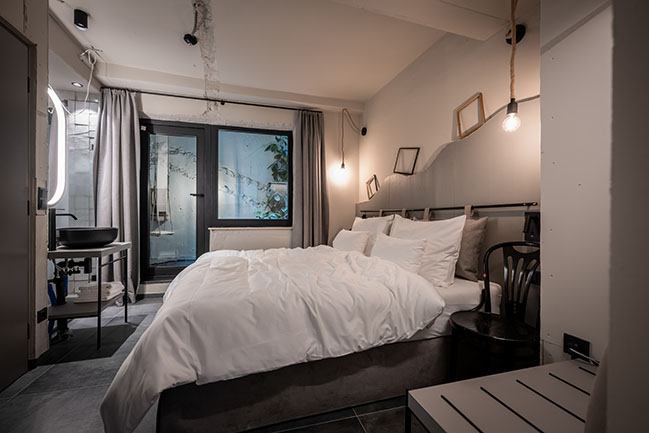
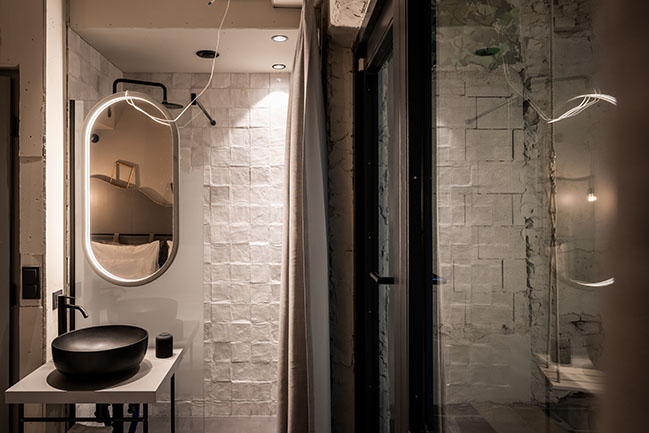
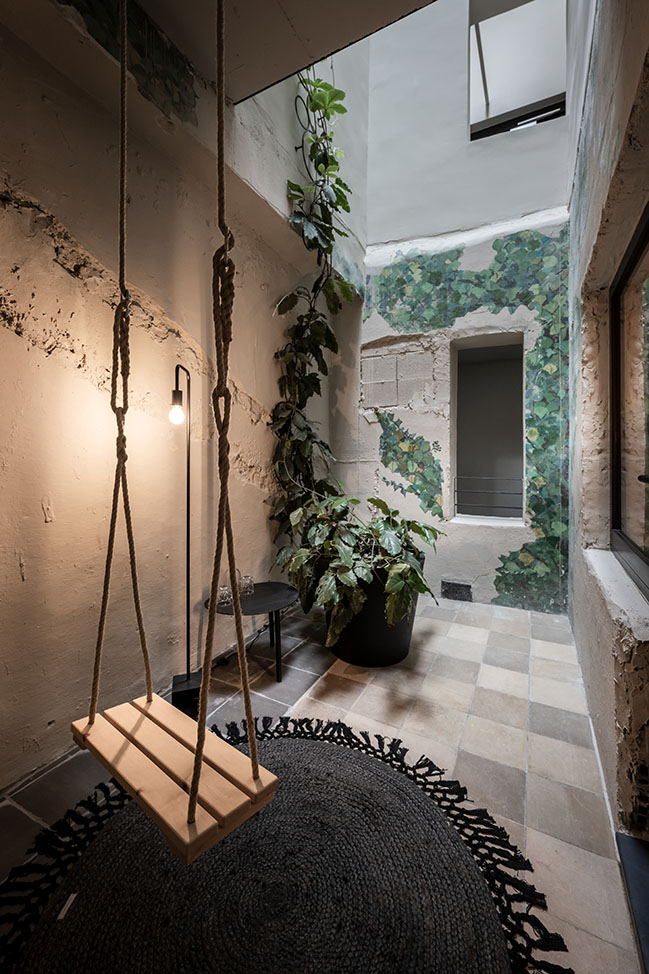
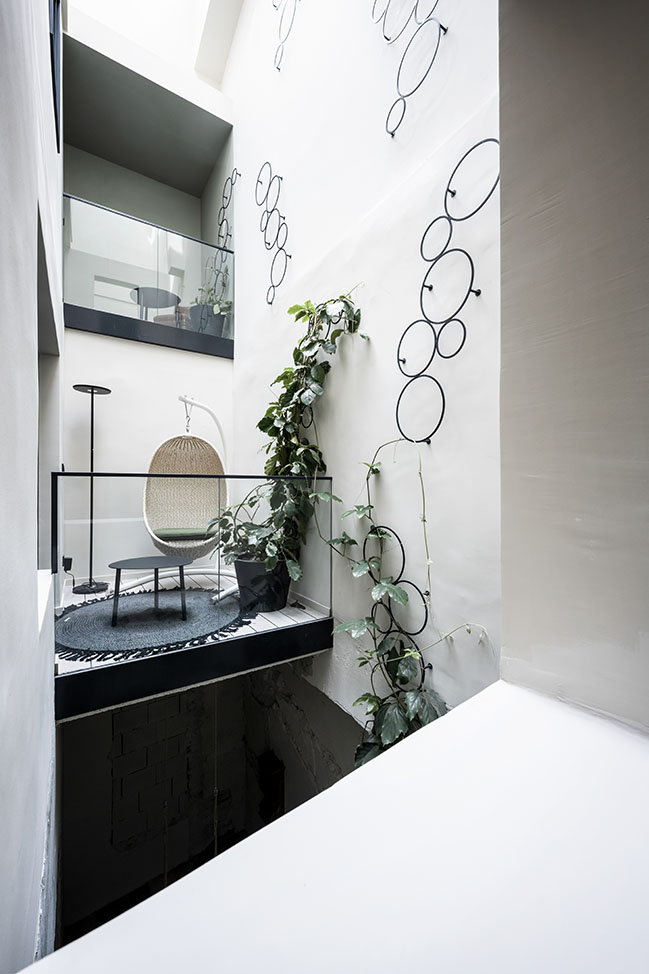
YOU MAY ALSO LIKE: The Seehof Hotel by noa*
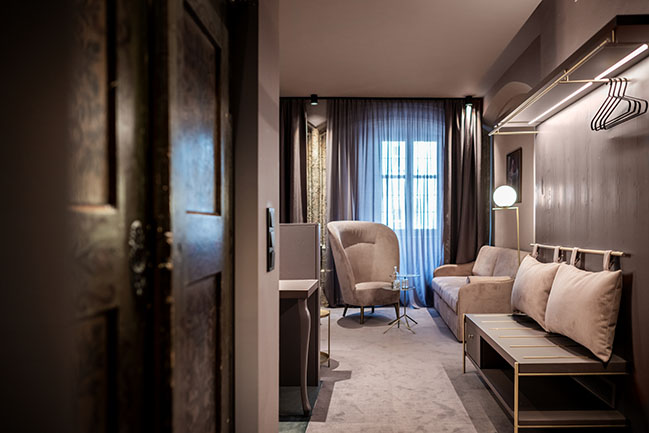
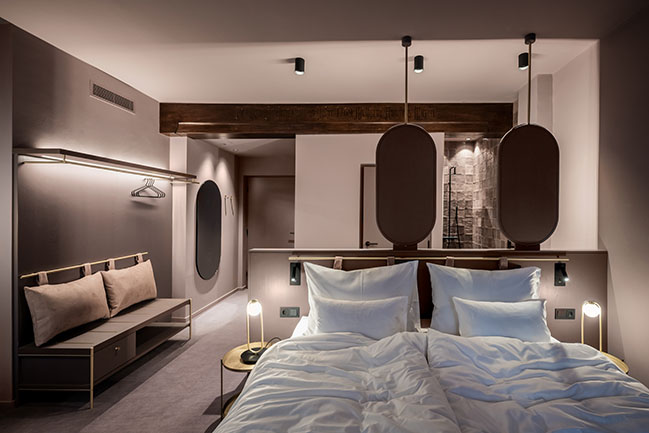
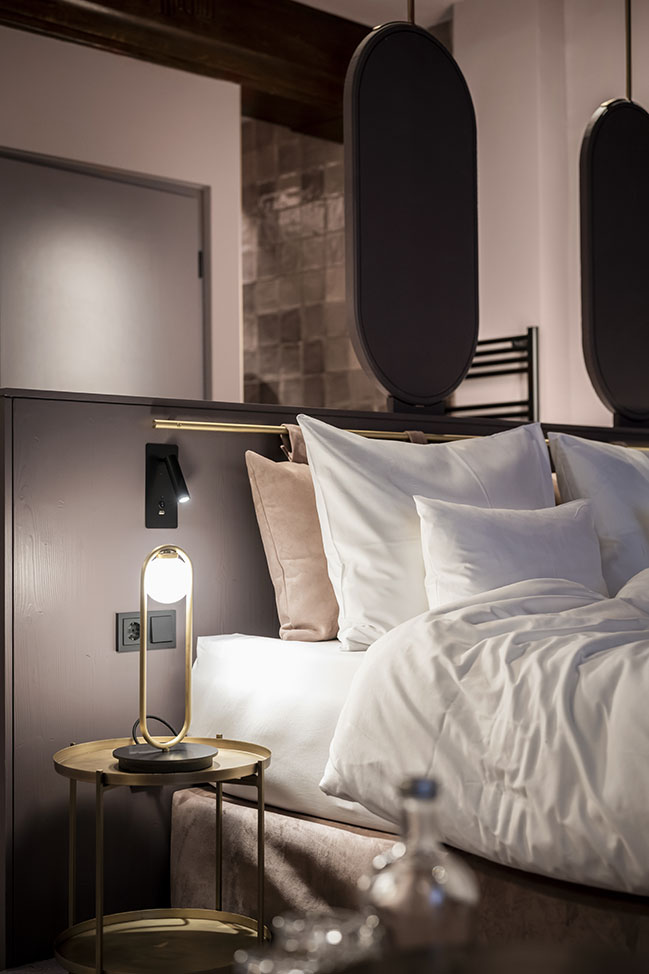
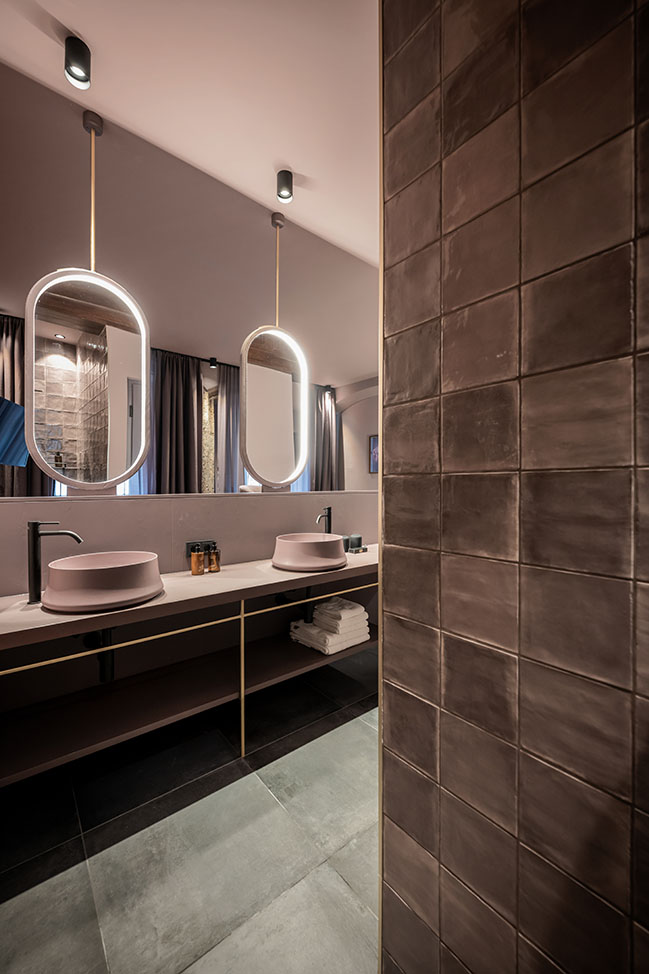
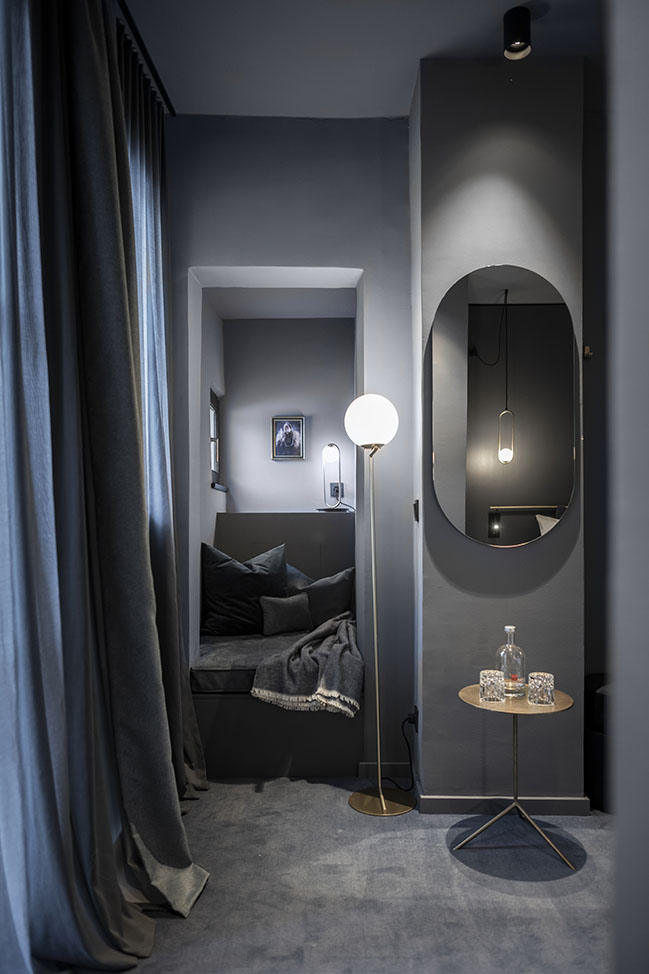
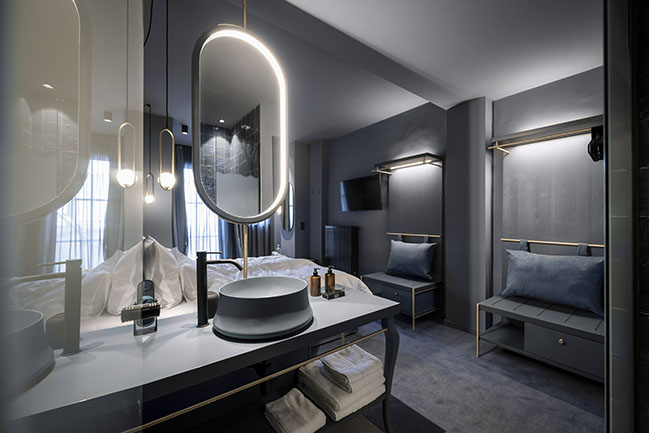
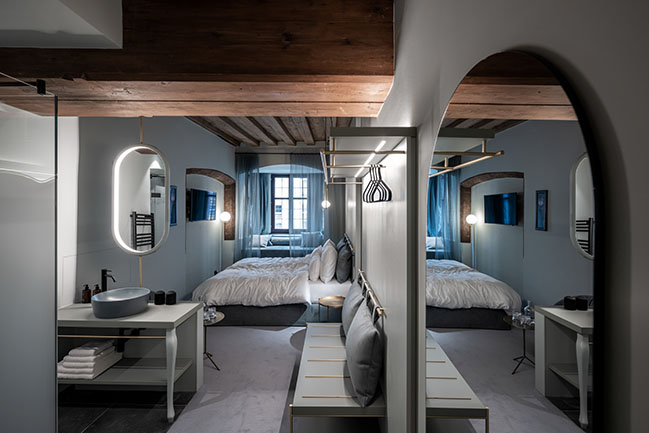
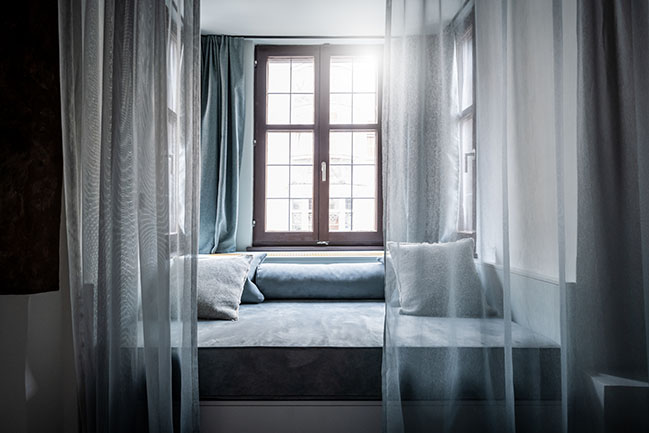
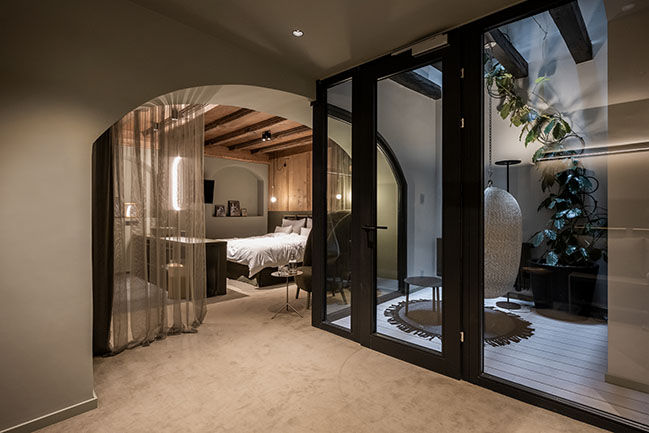
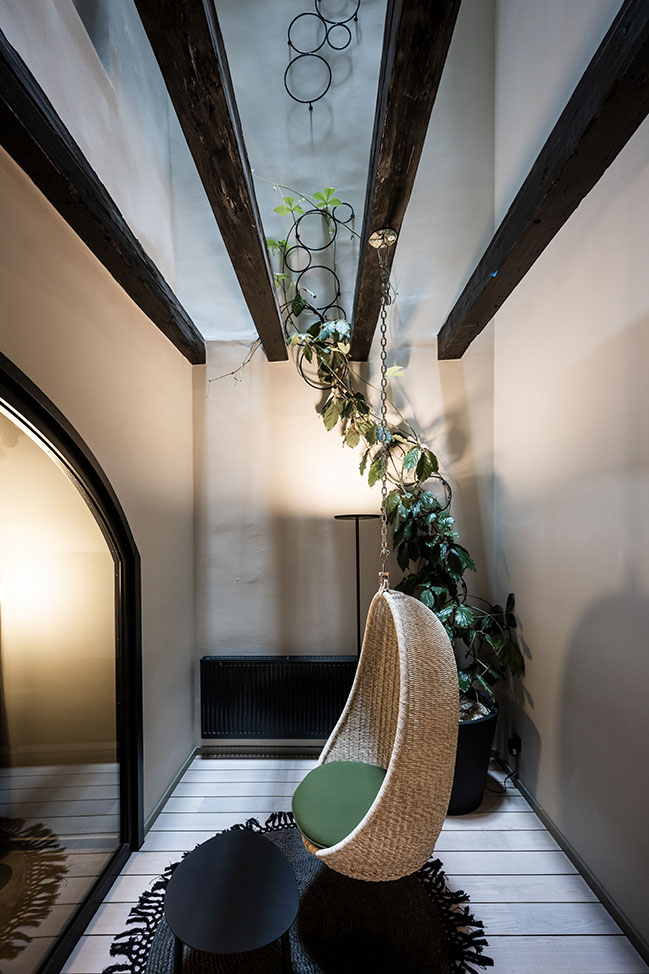
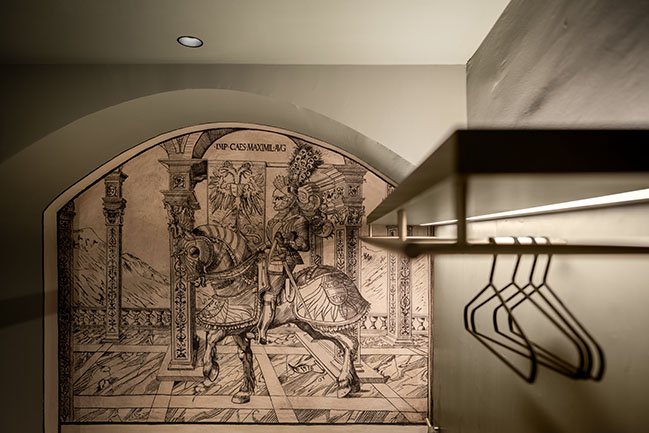
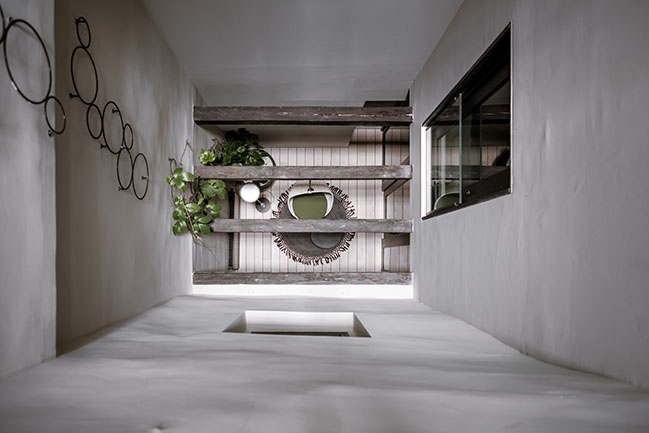
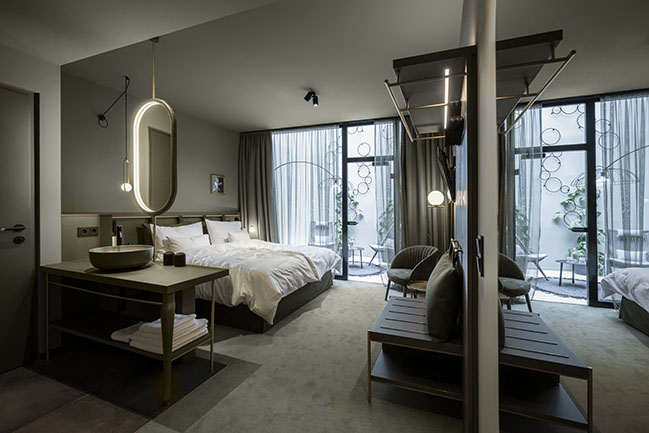
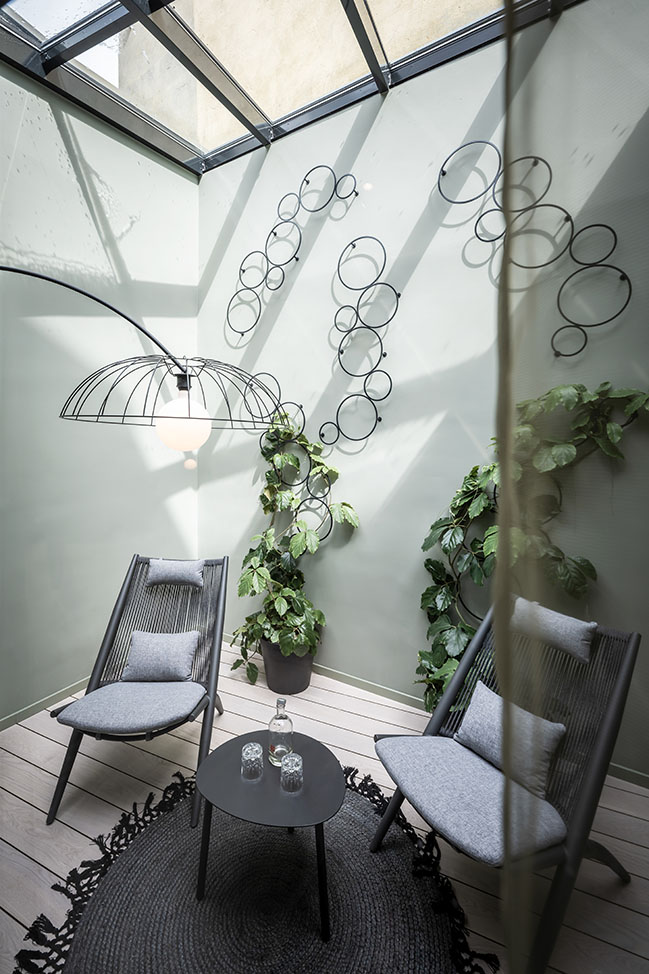
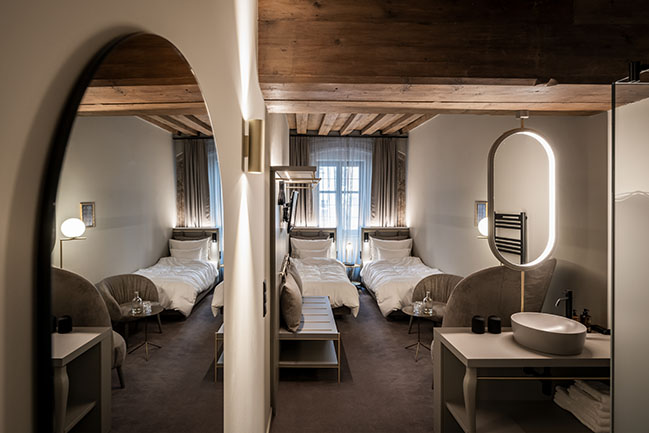
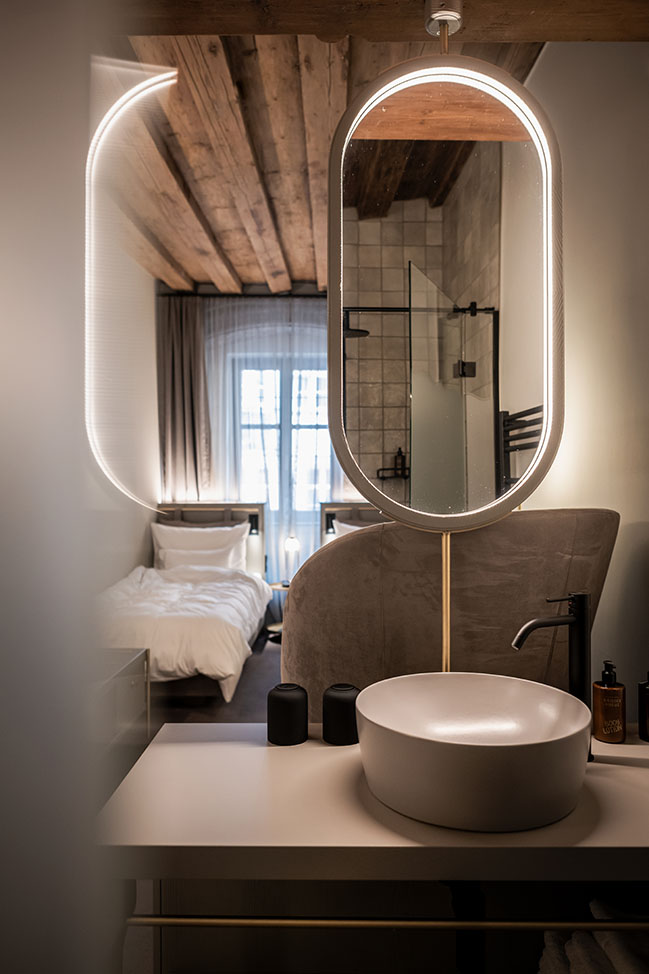

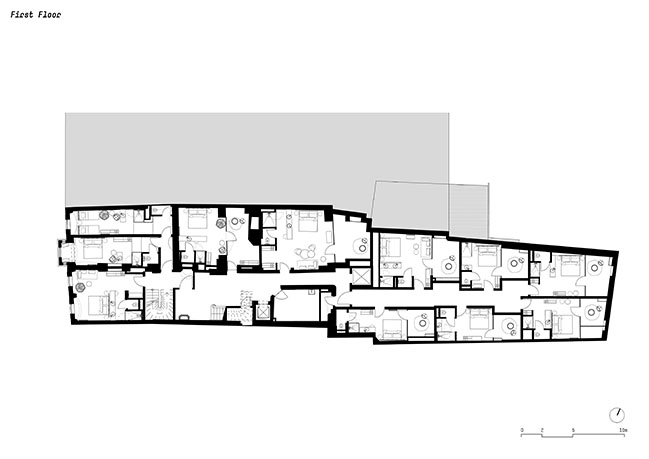
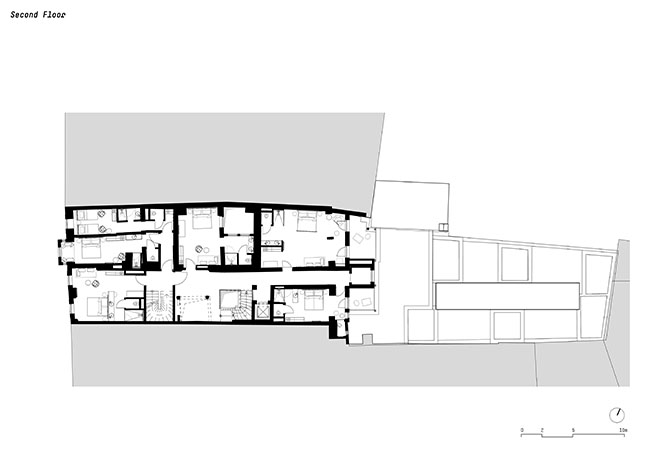
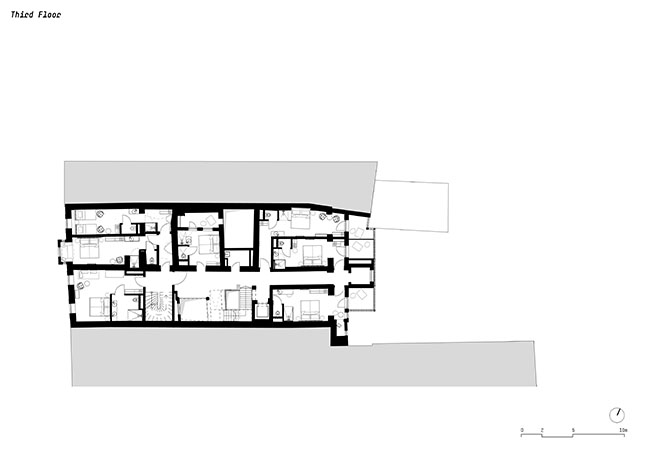
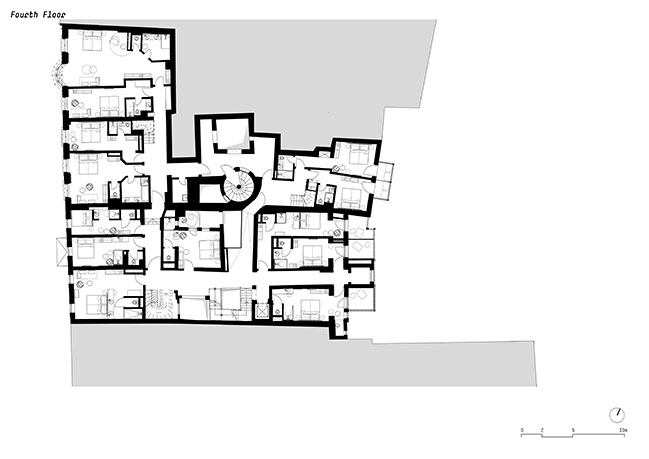

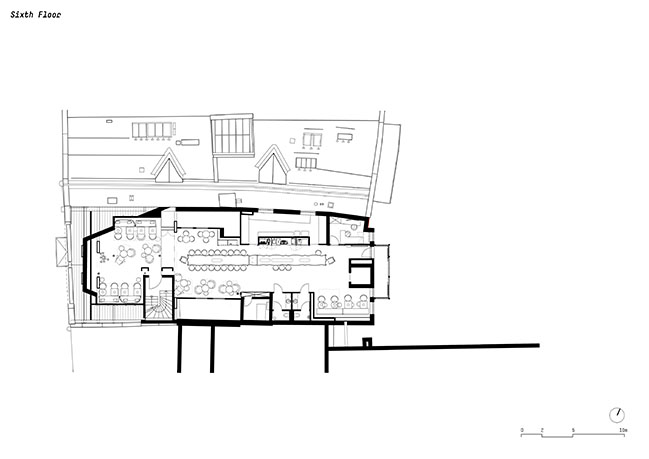
Weisses Kreuz: Rendezvous with Mozart by noa*
06 / 17 / 2021 Old house, new splendour. The Altstadthotel Weisses Kreuz in Innsbruck's city centre invites its guests to indulge in a refreshing and colourful journey through time with 48 new rooms and suites, where noa* has created the perfect setting...
You might also like:
Recommended post: DawnTown Landmark Miami by Dror
